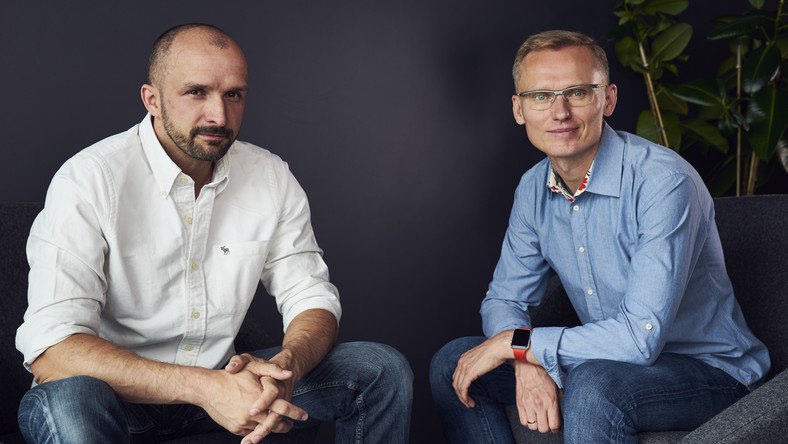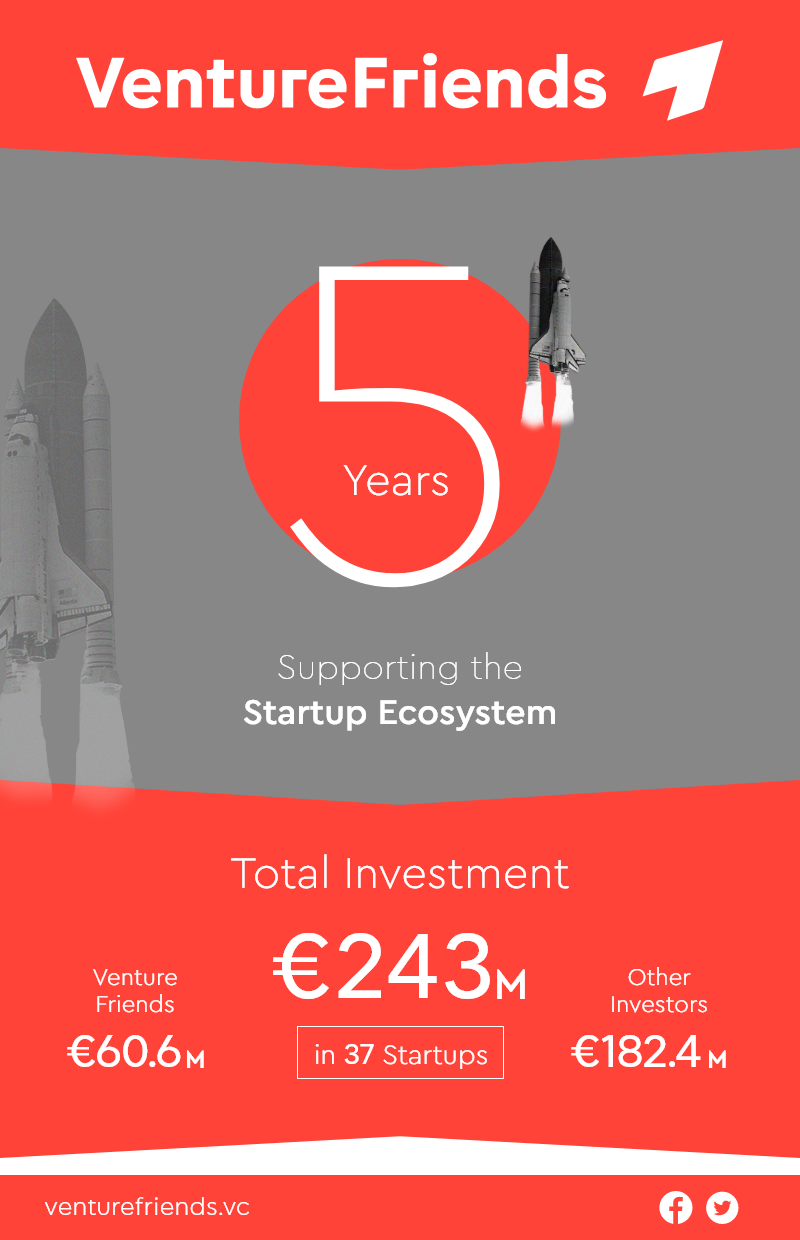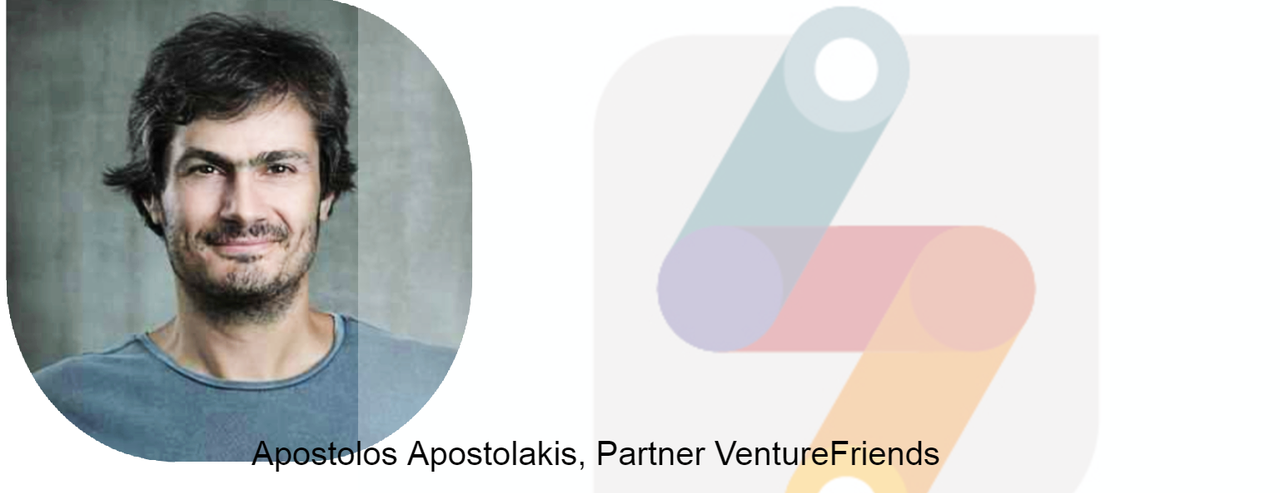Apostolos Apostolakis: if Polish startups were founded in Silicon Valley, they would already be unicorns
Apostolos Apostolakis is a Greek investor involved in the Polish ecosystem. He has invested in, among others, Booksy and Packhelp in their early stage of growth. Now his activities on the Polish market will be even more visible, as his fund, VenturePartners, is starting to invest in Poland. What he can say about the companies he supports and what does he think about the Polish ecosystem?
I want to talk about your background and secondly ,about your investments in Poland as this is what our portal is primarily focusing on. To start with - you were doing many many things from developing your own startups, then moving into investment as an Angel investor and later a VC partner. Can you tell me something about yourself, your history and how you moved to the investor side?
When it comes to my career in startups, it all began by accident. I was studying as a civil engineer, and in 1998, was one of 2 classmates who saw how Amazon was beginning, suggested that we need to have what Amazon is offering in Greece - so we launched the first e-retailer in Greece. Then I went to the US, for an MBA and when I came I was still involved in e-commerce through e-shop.gr. So for the next 4-5 years I was doing that, learning and growing in the e-commerce field, but at some point I realized that e-commerce was a tough and competitive space with low switching costs for the consumer. I also wanted to learn about other business models.
That is when I discovered the world of marketplaces, and started doing small angel investments in the field. My first investment was in a taxi marketplace called Taxibeat. It was an amazing experience, as this was the first time a Greek startup had grown internationally - we launched in Peru and Brazil. At the same time I co-founded e-food.gr a food delivery marketplace, and was involved in the early days of doctoranytime a doctor-patient marketplace similar to Polish Docplanner. So as the food delivery startup got sold in 2015 to DeliveryHero, I was learning and investing more in other startups in Europe, I then decided it was there was an opportunity to launch a Venture Capital fund.
I had a partner in mind whom I knew for many years and trusted, and together we launched VentureFriends - the first private-only fund in Greece in early 2016. Initially we wanted to support Greek founders, as there was not enough funding around. In a couple of years, when we saw that funding was more available, and we had a broader market understanding and access when it came to e-commerce, marketplaces, fintech and proptech startups , we became more European-oriented. In 2018 we raised our second, more international fund looking outside Greece, and with our third one, we are fully international, with no country-specific constraints.
Poland is one of the ecosystems I was always interested in, and one that I have discovered very early. What was pivotal was when in 2015 I visited Silicon Valley after an invitation by Google, and that was when I met Stefan Batory and Innovo. So I met Booksy and the early backers of Booksy. I was intrigued by the idea, by the tenacity and the strength of the founder, so this is why I became an investor in Booksy.

Then I met another strong VC from Poland - Market One Capital, we made a couple investments together, they introduced me to Packhelp, where I became an Angel investor, since the fund could not invest at the time. Market One also invested in a Welcomepickups a promising startup from Greece, so the connection was formed, then one of the Greek companies I invested in launched in Poland… this way I came even closer to the Polish ecosystem. The epitome of this is, that as a VC fund we now have a valuable team member, Michal Bas, who is based in Poland. We really want to be a positive, value adding part of the ecosystem here.
I was really amazed when meeting founders like Stefan Batory or the Packhelp team. I still remember the drive and enthusiasm of the founders and the conviction which was of an international calibre. This is what I think is the most interesting in our work. Meeting people with such mindsets that allows them to build international companies.
From an investor perspective, is it what you are looking for? The drive of the people? Or is it numbers-crunching and looking at what they show?
It is definitely the people. It has to do with the stage we invest in - early on, at the seed stage, when the numbers are not that meaningful yet. We are looking for the people who have both the drive and the capability to build something - that can build a product in a short period of time, that have the vision and understanding of the market, as well as the maturity that allows them to predict where their market will go.
To be honest, as investors, we also learn. We develop feelings and understanding of things, but we constantly learn. When we meet with great founders, they enlighten us. They show us how the world in their industry, in their specific sector, will look like. And this opens a completely new world which we didn’t know about. We might have seen models, but sometimes somebody tells you “Small retailers really need custom packaging, and we can streamline the whole process of creating it”. This is so interesting to learn about.
You have moved from being a private investor to being a VC Partner, how does your role change? Is it different investing your private money from investing with a group of people and sharing a pool?
I think the mindset is very similar. As a private investor I was looking for like-minded people with similar moral compasses. People I could trust in terms of character and capabilities. As a VC we are looking for the same kind of people, that we can see eye-to-eye with. What has changed is of course the scale and responsibility. As a VC fund you have a bigger responsibility, as you are managing other people’s money, so you have to be even more selective.
Sometimes it doesn’t have to do with the quality - as I have seen great founders, but the problem they were solving was a bit too narrow and couldn’t support a very large company. This is something very important from a VC perspective - you cannot invest in something that cannot scale very much, as the economics of the fund will not work. So this is the major change - size and return of investment. As an Angel investor, if you choose so, you do not need to take the size of the market into account - you like something, you invest a small amount and that’s it.
Also, the responsibility of a VC investor is higher, because when investing you signal to the market, and have to be ready to support a startup in difficult times. As an Angel investor you are a smaller part of the cap table, so you can afford not to support it in the next round - if you are a VC, you have to look longer term - even if the things prior to the next round do not go phenomenally, but just ok, you need to support them.

As a person coming from a Greek ecosystem, being responsible for forming it, and with international experience, what do you see in the Polish ecosystem from an outsider's perspective?
I think it is on a similar route that Greek ecosystem is taking - five or six years ago they were both dormant, there were not many successful startup entrepreneurs, I would even say very few. This is gradually changing at an accelerating pace, and I would expect that many new startups will emerge from Poland. The next five years will be really transformative.
We also see it in other ecosystems, e.g. Romania, with UIPath - where the successful exit had an effect on the whole ecosystem. Successes change the founders, who have bigger ambition, are building their connections, as they can connect with people who have made it, as well as the confidence of the investors, who can see investing in tech startups as lucrative. The whole ecosystem matures. Talented workers can also see that they do not need to work in a large company, as they can move to a startup and have a career with a significant upside if it is successful. We are in this place of growth for both Greece and Poland.
Polish VC market has a lot of government support - like the one provided by PFR to the ecosystem, how is it to compare the private funded VC with the ones with such funding?
Great question - to be transparent here, our first fund was privately funded, with the next ones we have received support from the European Investment Fund and the Greek public money. But at the beginning of an ecosystem it is important and helpful for the government to step in, provide capital, educate, help fund managers to reach the second stage of investment, as it is important to have a 20 mln EUR fund, but it is much more valuable to have a 50 mln EUR fund, that allows you for more room to grow and more impact. As long as the government support does not interfere with the decision making process, or impose bureaucratic difficulties, it’s fine.
Eventually the market should recognize and reward successful players, so the need for such support will not be so important, but things don’t happen overnight, so at least 5-10 years of support may be required. We have seen that in Israel or Silicon Valley, where at the beginning stages there was direct or indirect support from the government, but now it is not needed anymore - the market has grown and everyone wants to own or invest in a startup.
The important thing is not to impose too much bureaucracy, so the investor uses their time in the right way - discovering and supporting startups.
Looking at your first Polish investment - Booksy, did you imagine it growing the way it is now? Surely in the top 3 Polish startups on route to becoming a unicorn?
To be honest, I did. Stefan Batory is one of those guys who are dreaming very big, he is a second-time founder, so he knew what he was getting into and he knew where he wanted to go. I have also seen him in his difficult times, because he went through a lot to come to this place, and I have seen how he was working towards it.
The case was, for example, the US market - Stefan has moved to the US, Booksy was also targeting the market very early on - so the vision was there from the very beginning. I didn’t think it would be difficult. At times I was wondering why Booksy didn't manage to raise funds easily from a US investor. I had a similar case with a very promising Greek startup - Blueground. They were on parallel paths, and they were getting rejections one after another. I was asking myself why, as their promise was obvious to me: these companies were going to be huge. Eventually both companies made it, raised significant capital and reached scale but it was not a smooth ride.
The answer to this is that we still have to prove that Greece, Poland, and other peripheral ecosystems can also create ambitious founders with a global vision that can create global companies. If they have been founded in Silicon Valley, they would have been unicorns very quickly. It is a curse, but a blessing as well, as some great founders are neglected at the beginning, and we see European startups taking the world by storm. We see a new breed of European successes appearing because they were neglected by the US investors.
You have mentioned difficult times - with investing in traveltech, and the case of Booksy cutting their staff at the beginning of the pandemic, you have seen some recently. What is the role of an investor during such times from your perspective?
The role is always to support. It is even more important during difficult times, as we are a bit more detached from the painful day to day . But the role is to is share your opinion and following it with specific arguments. Sometimes it is mostly psychological, as the founder understands what needs to happen, he knows that he needs to reduce staff - the role of the investor is then to ensure that it is the right thing, as the company will not make it, burn capital… It is also to financially support in the middle of the crisis if they believe in the startup - the investment thesis does not change, we still trust the people we have trusted.
We have talked to a number of startups and their approach to investors - some only require money, some need guidance, some need a network - what is the way investors should support the different needs of founders?
Ideally the founder should know the sector, should understand it, and solve a specific problem. They should come with this sectoral knowledge, and the investor also should ideally have some of this experience as well. It helps if investors were entrepreneurs, so they can help with the problems and relate to them. It is important for them to have passion, just like the founder, and be willing to put in work to learn about the industry and support their founders.





